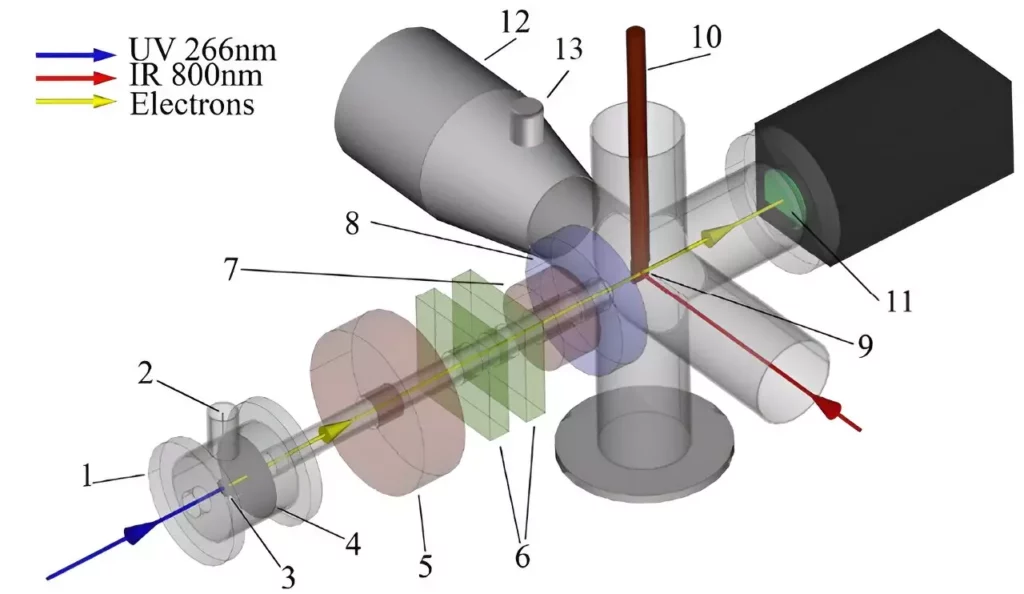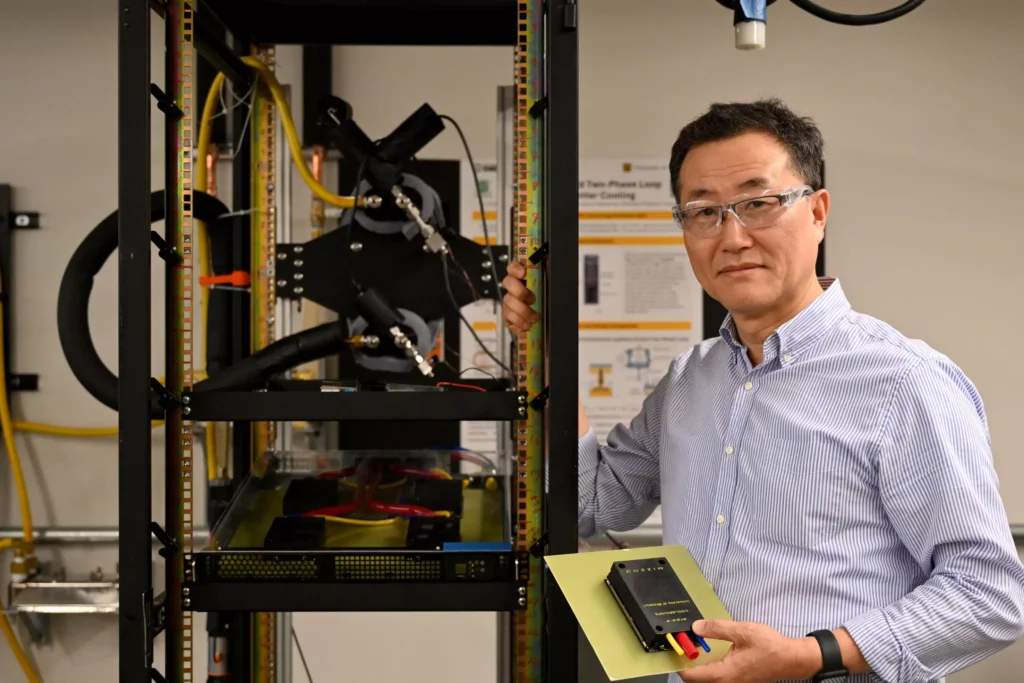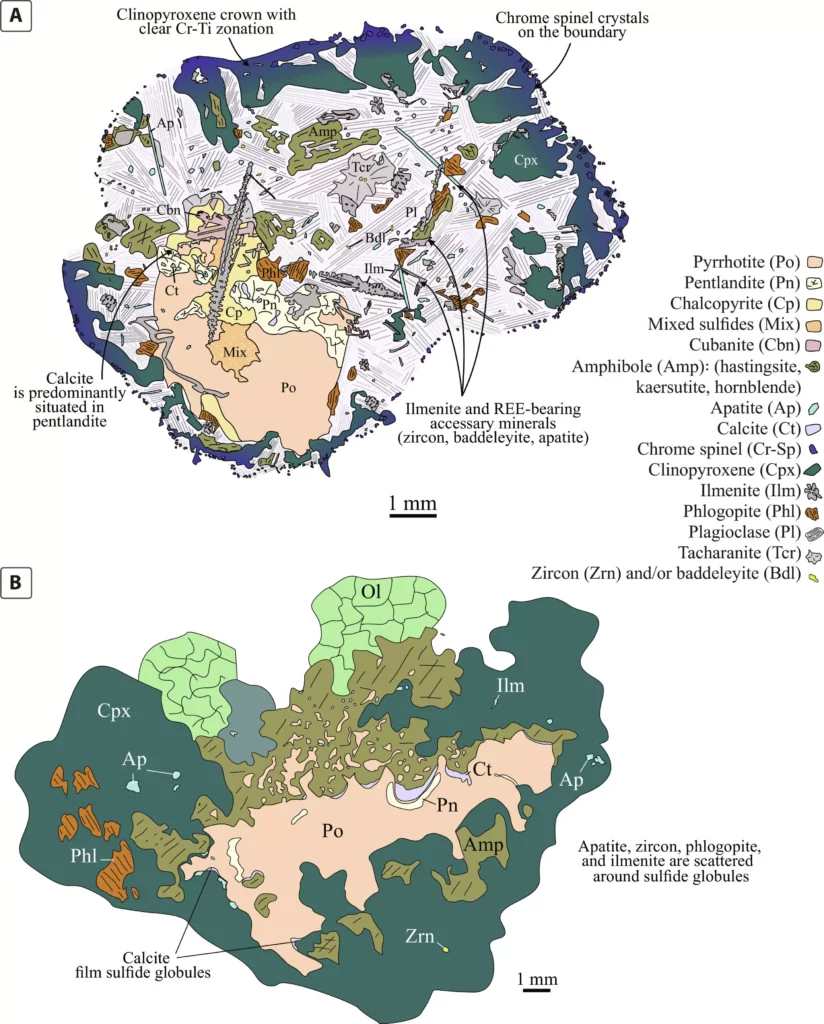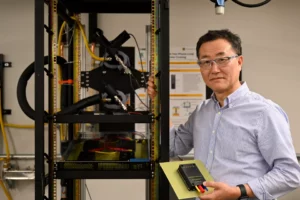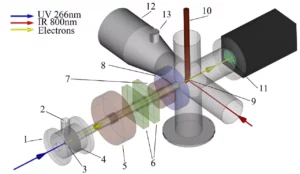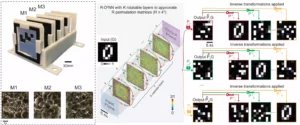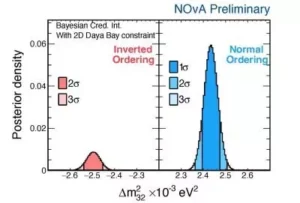In the relentless quest for faster, more adaptive electronics, scientists continually explore novel methods to control material behavior at microscopic levels. A groundbreaking discovery from researchers at EPFL has illuminated a fascinating path forward: using light as a precise tool to manipulate the fundamental states of materials. Contrary to traditional approaches that rely on temperature
As artificial intelligence (AI) continues its rapid expansion, the infrastructure supporting this technological boom faces unprecedented challenges. Central to this infrastructure are data centers—massive hubs of computational power that underpin everything from social media to global finance. However, with increased demand comes a significant energy burden, particularly in cooling systems that maintain the operational integrity
In the vast landscape of scientific progress, few advances promise as much transformative potential as the ability to observe individual molecules in their natural state. The recent breakthrough by researchers at the University of Wisconsin–Madison signifies a seismic shift in molecular science. By developing the most sensitive label-free detection method to date, they have opened
In the quest for sustainable resources, understanding how valuable green metals like nickel, platinum, and copper travel from deep within the Earth to its surface is crucial. Recent groundbreaking research from The University of Western Australia has shed new light on this process, challenging long-held assumptions and unveiling a natural “secret ingredient” that facilitates this
For decades, Alzheimer’s disease has remained an insurmountable frontier in medical science, cloaked in frustration and relentless disappointment. Despite billions poured into research, a definitive cure continues to elude scientists, leaving millions of patients and their families in despair. Yet, recent developments inject a fresh sense of optimism, challenging the narrative of hopelessness that has
In the grand tapestry of the universe, phenomena like Einstein crosses serve as extraordinary visual confirmations of the enigmatic nature of gravity and spacetime. These rare cosmic alignments, formed when light from distant galaxies is warped around massive objects, offer a glimpse into the invisible forces sculpting the universe. For eons, astronomers have marveled at
In the ongoing quest to find effective, non-invasive solutions for weight management, drugs like Ozempic and tirzepatide have emerged as promising contenders. These medications, classified as GLP-1 receptor agonists, have gained significant popularity for their ability to suppress appetite and induce weight loss. However, a critical examination of recent research reveals that, despite their benefits,
The recent imagery captured during the September 7 lunar eclipse has ignited a wave of curiosity among astronomers and space enthusiasts alike. Interstellar comet 3I/ATLAS has displayed a mesmerizing greenish hue—a phenomenon commonly associated with comets heating up as they approach the Sun. Yet, beneath this familiar glow lies a perplexing chemical anomaly that challenges
For over six decades, metformin has stood as the cornerstone of type 2 diabetes management. Its long-standing reputation stems from its proven ability to lower blood sugar levels effectively and its relative safety and affordability. Yet, despite its widespread use, the precise mechanisms by which it exerts its beneficial effects have remained somewhat elusive. Traditionally,
Throughout Earth’s tumultuous history, catastrophic impacts have often been seen solely as agents of destruction—mass extinctions, climate upheavals, and planetary reset buttons. However, emerging research challenges this narrative, revealing that some of these fiery encounters may also serve as cradles for life. The recent groundbreaking findings from the Lappjärvi impact structure in Finland demonstrate that,
In the realm of astronomy, spontaneity often fuels human imagination. Whenever a new celestial object drifts into our vicinity, especially those with irregular or Earth-like orbits, it’s tempting for many to speculate about alien technology or interstellar probes. This knee-jerk reaction is almost instinctual—an attempt to ascribe extraterrestrial agency to what might simply be natural
Breast cancer survival rates have improved remarkably over recent decades, yet a shadow of uncertainty still looms. Even after successful treatment, approximately 30% of patients face the devastating return of their disease. These recurring tumors, often dormant and undetectable for years, are responsible for a significant number of fatalities, claiming around 685,000 lives globally each
For centuries, humanity has looked at the Sun as a bastion of constancy, a fiery celestial furnace unwavering in its rhythm. Yet, recent developments challenge this naive perception, revealing that our star is far more unpredictable and dynamic than previously thought. The expectations set forth at the close of Solar Cycle 24 painted a picture
The global COVID-19 pandemic has left a trail of physical and psychological scars, many of which remain underexplored. Among these less acknowledged consequences is the complex relationship between long COVID—a condition characterized by persistent symptoms long after initial infection—and disruptions to menstrual health. Emerging research indicates that women are experiencing more than just the usual
Brazil’s recent ban on Twitter’s successor, X, has ignited a seismic shift in the nation’s digital ecosystem. What was once one of the world’s most engaged social media landscapes is now experiencing a flood of migration towards alternative platforms. This abrupt transition challenges the assumed dominance of well-established giants and exposes the fragility of digital

